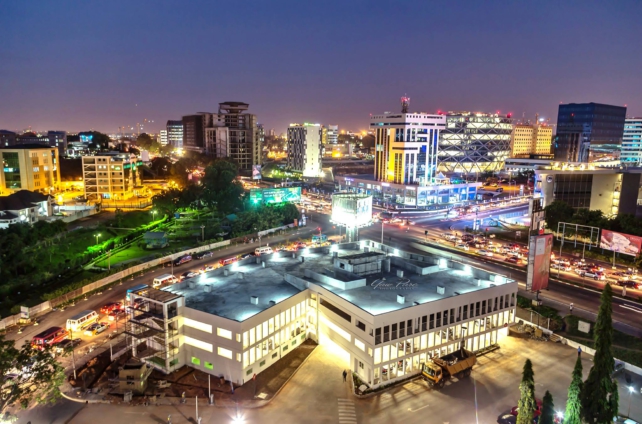A total of $7.9 billion of investments involving private participation in infrastructure since the year 2000 put Ghana among the top three Sub-Saharan African markets, after South Africa and Nigeria.
According to Fitch Solutions latest appraisal of the Ghanaian economy, considerable Private Public Partnership track record and pipeline underscore private infrastructure investment opportunities in the country since the year 2000.
“Our positive outlook for private participation in Ghana’s infrastructure sector is underpinned by the country’s considerable PPP track record and project pipeline, with energy and transport being key sectors for private investment opportunities”, it pointed out.
Furthermore, it said “according to our proprietary Fitch Solutions Infrastructure Key Projects Database, public-private partnerships account for almost 20% of planned infrastructure projects in Ghana, highlighting that PPPs will continue to play a significant role in Ghana’s infrastructure sector.”
The pipeline of planned PPPs again it stressed underscores the significant potential of Ghana’s power sector, as electricity projects account for the pipeline’s largest share. Independent power producers (IPP) play a significant role in Ghana’s power sector, with IPPs contributing a large share of installed capacity.
However, a significant debt burden, with outstanding arrears towards IPPs exceeding $1 billion, have prompted Electricity Company of Ghana to renegotiate standing power purchasing agreements (PPA) with independent power producers.
“While renegotiations of take-or-pay agreements, which oblige the public utility to pay a fee for electricity it does not purchase from IPPs, will likely weigh on investor interest in the short term, we expect that they will contribute to lower electricity prices and a more financially sustainable IPP programme, particularly if coupled with a reform of electricity distribution”, it emphasized.
“A recent concession of distribution in Ghana was cancelled quickly after its award, but we expect that the government’s existing readiness for privatising distribution will increase further following the national elections in December 2020”, it noted.
In the transport sector, Fitch Solutions said the prevalence of debilitated colonial railways will continue to provide ample opportunities for high-value brownfield concessions, following the completion of capital intensive port projects.
Currently, two rail projects worth a total of $2.8 billion are being constructed as public private partnerships respectively involving German and Indian companies and financiers, indicating foreign investors’ confidence in Ghana’s potential as a gateway to West Africa and its hinterland.
Latest Stories
-
BlowChem announces price reductions on beverages, effective June 1
15 minutes -
When lawmakers themselves appear unwilling to abide by the laws they legislate
4 hours -
Mahama promises 200,000-hectare cocoa expansion to revitalise industry
4 hours -
Communications Minister unveils gov’t’s digital inclusion plan for PWDs
4 hours -
Youth group accuses judiciary of undermining anti-corruption efforts
4 hours -
Parliament recommends ratification of WTO agreement on fisheries subsidies
4 hours -
Ghana to roll out Labour Export Initiative – Mahama announces
4 hours -
Two killed in fatal accident on Bole–Damongo Road
4 hours -
Joseph Ade Coker, former NDC Greater Accra Regional Chairman dies
5 hours -
From Bulldozing to Bail-Begging: Wontumi’s Plot Twist No One Saw Coming
5 hours -
Mahama promises new modern regional hospital for Ahafo Region
5 hours -
Appiagyei-Atua: Protest by Minority over Wontumi’s arrest unnecessary and theatrical
5 hours -
Parliament approves GH¢10bn for NHIA
5 hours -
Martin Kpebu alleges some NPP bigwigs exploiting Wontumi’s arrest for political gain
5 hours -
Mahama orders swift completion of Maaban-Goaso Highway as he vows not to abandon projects started by previous government
6 hours

